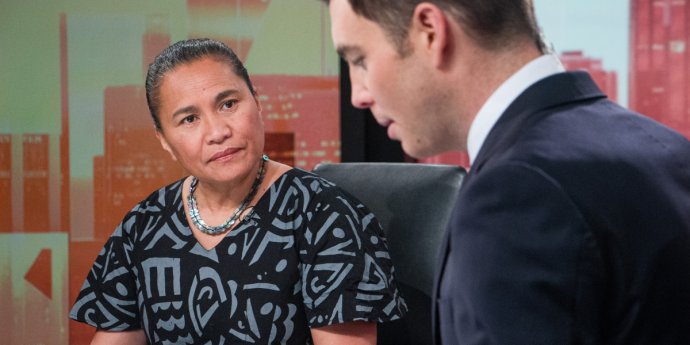OPINION
IMHO: Ensure third parties are safe with your data
Directors should require ISO/IEC 27001-certified partners for customer data handling.
Saunoamaali’i Karanina Sumeo says in continuing to do business with the US we need to be clear about our values.

The role of leadership is not something former Equal Employment Opportunities Commissioner Saunoamaali’i Karanina Sumeo has ever taken lightly.
She has just departed her role with Te Kāhui Tika Tangata Human Rights Commission (what was originally a five-year term extended to six) where she had also taken on the role of Acting Chief Commissioner and Acting Race Relations Commissioner.
Given that we’re about to discuss race relations in Aotearoa, it seems strangely fitting that our interview is taking place on the day of the US election – a country whose history has been fraught with race-related issues that continue to carve out a divide.
“The USA is an interesting phenomenon,” says Sumeo, acknowledging recent discriminatory comments made by Donald Trump and his campaign supporters against the Puerto Rican community – the type of rhetoric that would be alarming if it were to happen here.
“It's just not very ‘us’ to think like that, but in the US, it’s a very different culture,” she says.
Conversely, Kamala Harris’ stance over women’s right to abortion is something Sumeo feels is aligned with New Zealand’s values.
“We've taken abortion out of the Crimes Act in New Zealand…it's a health issue…it’s about the rights of the women and the progress we’ve made to preserve those things,” Sumeo says.
“Our values are good for us; we still have to do business with the US and everybody else, but we have to really be clear of our own values, so that we don't compromise them.”
During her tenure, Commissioner Sumeo advocated for issues including gender and ethnic pay equity and the vital need to close these gaps. As an example, she says boards could attach pay transparency to a manager’s KPIs.
“It sounds so basic, but boards can absolutely insist that their human resource department make sure that their people are paid fairly.”
And if businesses find themselves continuing to promote the ‘same type’ of leader, Sumeo suggests there may be a need for the organisation to take a wider view of what leadership looks like. This is also where boards could focus more on recruitment strategies to build their diversity.
Directors need to make sure that everybody is taking responsibility for ensuring equal employment opportunities.
The aim should be to ensure that everyone is treated equally, and Sumeo believes pay is fundamental: “If you pay people properly then you can look in the mirror as a board, or as a director, and say, ‘I've done the right thing because that pay feeds children who at waiting at home,’ and so forth.’”
Well aware that racism and discrimination can take many forms, Sumeo believes that by looking at worker exploitation in this country, it is possible to understand how deep this prejudice runs.
“As a woman of colour, I know that racism is alive and well, and we have evidence of it. We have researchers investigating it; there are stories every day about migrant exploitation – part of that is discrimination and racism,” the former Commissioner says.
Procurement practices, according to Sumeo, should also be closely examined by boards. She adds that the Human Rights Commission itself reserves the right to withdraw contracts with other businesses if there is an indication that modern slavery is happening through the company’s supply chain.
“Through your procurement practices you can also send messages that will be beneficial on issues like stamping out racism and migrant exploitation, and that is within the board's control.”
A company’s reputation will also be at stake, impacting its ability to trade internationally. Conversely, those companies who care about their people and how their products are produced will reap many benefits including improved trust and values alignment with stakeholders.
“If you can combine the economic benefits with the social benefits that add to the wellbeing of people and communities, I think that's also really good for New Zealand, and there is a lot that a board can do.”
Coming back to the state of New Zealand’s race relations, the former commissioner who will be dedicating time to be with her family now that her role has ended, says one concern she has is the Treaty Principles Bill, which she describes as “unsettling because of the message it might send”.
“So we have to be careful and speak respectfully…in Parliament, but also outside in the community,” she says.
As a Pacific nation, Sumeo says harmony for Aotearoa also entails looking after and respecting our closest neighbours, and treating everyone with dignity and respect, regardless of culture, religion, ethnicity or race.
“All we want is for people to be treated fairly and equally,” Sumeo says.